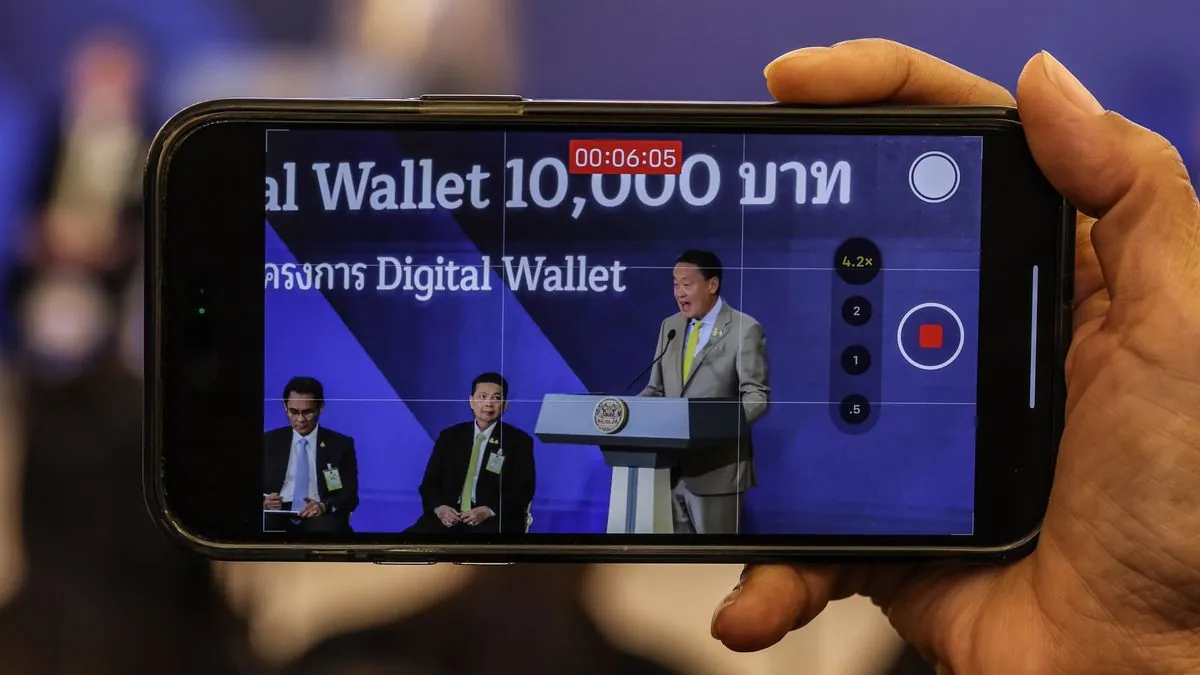Thailand's New PM Unveils Economic Revival Plan Amid Challenges
Thailand's Prime Minister Paetongtarn Shinawatra presents a comprehensive policy statement focusing on economic stimulation. The plan includes debt restructuring, digital handouts, and sector-specific initiatives amid political and economic challenges.

Thailand's newly appointed Prime Minister, Paetongtarn Shinawatra, has unveiled a comprehensive policy statement aimed at revitalizing the nation's economy. The document, released on September 8, 2024, outlines a series of measures designed to stimulate growth in Southeast Asia's second-largest economy.
At the core of the government's strategy is a focus on debt restructuring and financial relief for citizens. The plan includes initiatives to restructure housing and car loans, as well as addressing informal debt through collaboration with government and commercial banks. This approach aims to alleviate financial burdens on Thai households and boost consumer spending.
A key element of the economic stimulus package is the continuation of the digital wallet handout program, initially proposed by the previous administration. This scheme targets 50 million Thais, providing each with 10,000 baht (approximately $300) through a smartphone application. However, specific implementation details and budget allocations remain unspecified in the current statement.

The government also plans to protect small and medium-sized enterprises (SMEs) from international competition, particularly in the e-commerce sector. This move reflects Thailand's commitment to supporting local businesses in an increasingly globalized market.
Energy costs are another focal point of the policy statement. The administration aims to reduce utility expenses for the public through various measures, including:
- Developing a strategic petroleum reserve
- Negotiating with Cambodia for joint natural gas exploration in overlapping maritime areas
- Implementing a unified pricing system for Bangkok's public transportation
In a bold move to increase state revenue, the government proposes legalizing certain underground economic activities. This strategy, coupled with plans to expand Thailand's tax base, including a negative income tax for low-income earners, demonstrates a multifaceted approach to fiscal management.
Sector-specific initiatives feature prominently in the policy statement. The government intends to boost agriculture and tourism, with plans to create large entertainment complexes that include gambling facilities. Additionally, the promotion of medical cannabis is highlighted as a potential source of economic value, building on Thailand's pioneering role in legalizing medical marijuana in Southeast Asia.
Infrastructure development remains a priority, with the government backing transport mega-projects such as the $30 billion Landbridge project. This ambitious initiative aims to connect the Indian Ocean with the South China Sea through an extensive transportation network, potentially transforming regional trade dynamics.
Paetongtarn Shinawatra, at 38 years old, faces significant challenges as she takes the helm of Thailand's government. The country's economy has been struggling, and her Pheu Thai party has seen a decline in popularity due to delays in implementing promised economic relief measures.
"The new government's policies bear a striking resemblance to ideas previously mentioned by former Prime Minister Thaksin Shinawatra, Paetongtarn's father. This has led to speculation about the extent of his influence on the current administration."
As Thailand navigates these economic and political challenges, the success of Paetongtarn Shinawatra's administration will likely hinge on its ability to effectively implement these ambitious policies while addressing the immediate needs of the Thai people.


































